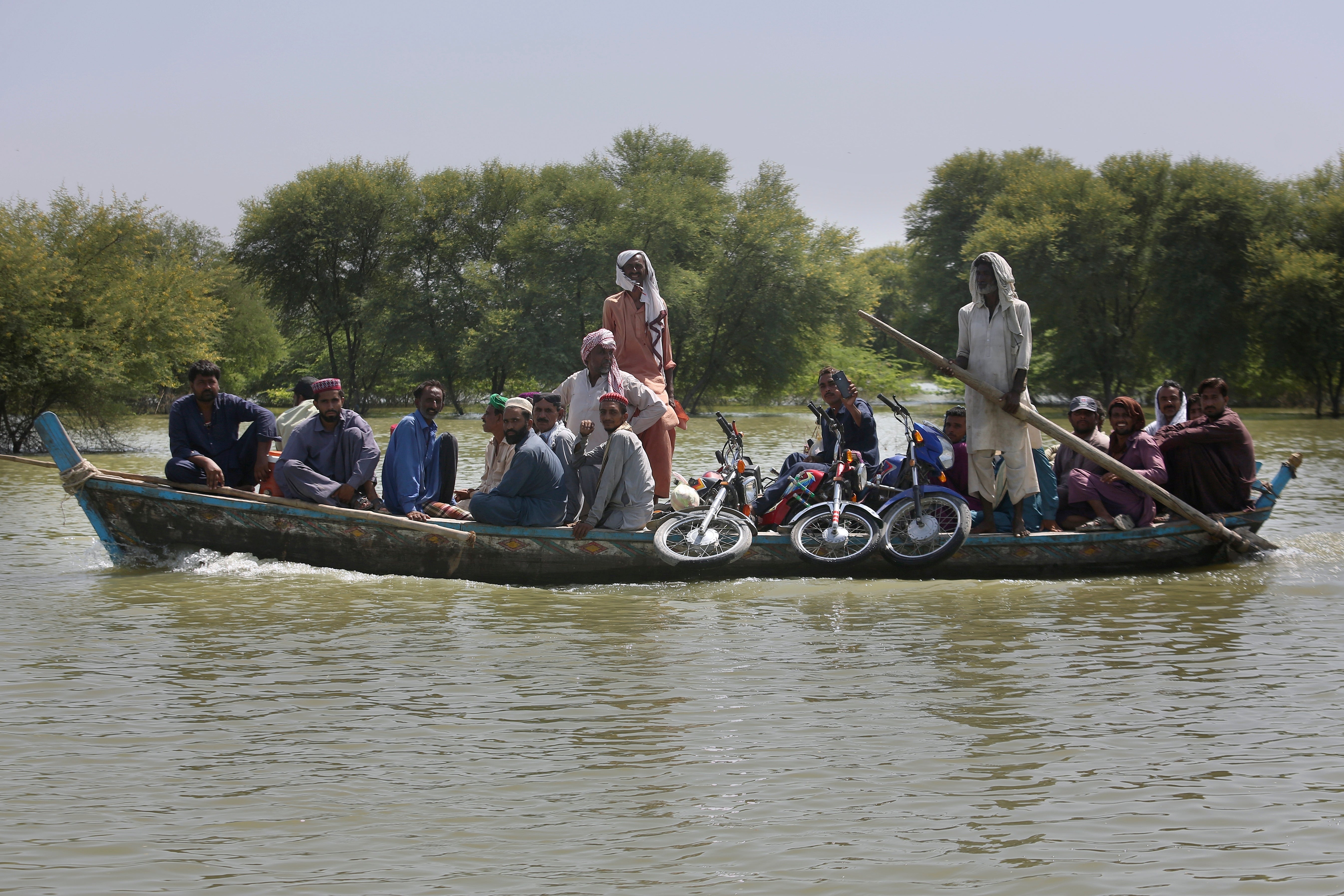Pakistani flood victims in worst-hit province return home
Pakistani officials say that more than half of the flood victims in the country’s worst-hit Sindh province have returned to their homes over the past three weeks as the water gradually receded

Your support helps us to tell the story
From reproductive rights to climate change to Big Tech, The Independent is on the ground when the story is developing. Whether it's investigating the financials of Elon Musk's pro-Trump PAC or producing our latest documentary, 'The A Word', which shines a light on the American women fighting for reproductive rights, we know how important it is to parse out the facts from the messaging.
At such a critical moment in US history, we need reporters on the ground. Your donation allows us to keep sending journalists to speak to both sides of the story.
The Independent is trusted by Americans across the entire political spectrum. And unlike many other quality news outlets, we choose not to lock Americans out of our reporting and analysis with paywalls. We believe quality journalism should be available to everyone, paid for by those who can afford it.
Your support makes all the difference.More than half of the flood victims in Pakistan’s worst-hit Sindh province have returned to their homes over the past three weeks as the waters there gradually receded, officials said Monday.
The announcement came as Prime Minister Shahbaz Sharif visited the district of Jaccobabad in Sindh, from where he was traveling to the town of Sohbatput in another flood-stricken province, Baluchistan, his office said.
Floodwaters are gradually receding in both provinces and elsewhere in Pakistan, engulfed since mid-June in unprecedented monsoon rains and floods that have killed 1,719 people in the impoverished South Asian country. At one point in August, more than half a million people were living in tents across Pakistan.
The disaster management agency in Sindh said currently a little over 200,000 people are living in relief camps in the province, where the floods have affected 12 million people and killed 780.
The Indus River, which caused much of the devastations in Sindh, is now at normal levels, though authorities say it will take another two months to completely drain the water.
Waterborne diseases and skin infections are spreading in Sindh, where doctors have treated 30,000 people over the past 24 hours, the provincial health department said Monday.
Nationwide, the floods have affected 33 million people, damaged over 2 million homes, washed away thousands of kilometers of roads and destroyed 435 bridges. The overall fatalities have included 641 children and 345 women.
Several economists and government officials have said the cost of the disaster may reach $32 billion.
The United Nations humanitarian agency said over the weekend that 7 million women and children and women require immediate access to food and that around 5.5 million people have no access to safe drinking water. Around 8.2 million people in flood-affected areas needed urgent health services, OCHA said.
The U.N. in early October raised its call for $160 million to $816 million to help with the crisis.
For his part, Sharif has repeatedly asked developed countries — nations that experts say have impacted climate change the most — to scale up aid to his impoverished Islamic nation, where authorities say flood survivors will face a harsh winter this December.